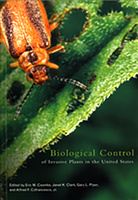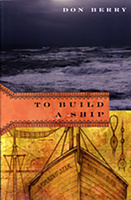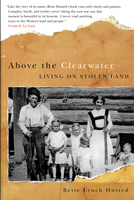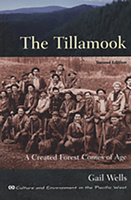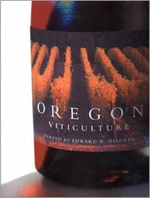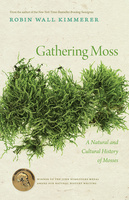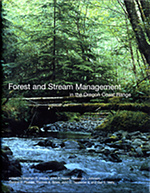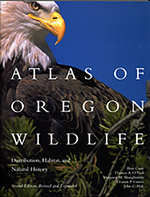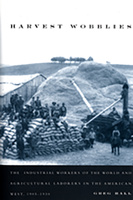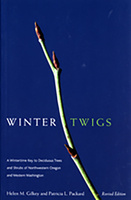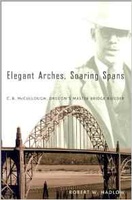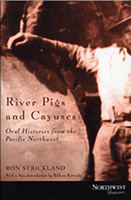Oregon State University Press
For fifty years, Oregon State University Press has been publishing exceptional books about the Pacific Northwest—its people and landscapes, its flora and fauna, its history and cultural heritage. The Press has played a vital role in the region’s literary life, providing readers with a better understanding of what it means to be an Oregonian. Today, Oregon State University Press publishes distinguished books in several academic areas from environmental history and natural resource management to indigenous studies.
Work, Welfare, and Politics
Confronting Poverty in the Wake of Welfare Reform
Place Matters
Geospatial Tools for Marine Science, Conservation, and Management in the Pacific Northwest
Tongass, Second Edition
Pulp Politics and the Fight for the Alaska Rain Forest
Natural Enemy, Natural Ally
Toward An Environmental History of War
Waging War on the Home Front
An Illustrated Memoir of World War II
To Build a Ship
In To Build a Ship, Don Berry explores the extent to which a man can betray himself and his morality for a dream or an obsession. It's the story of a handful of settlers who take up land in the fertile Tillamook Bay Valley in the early 1850s-defiant dreamers battling the wilderness. With impenetrable mountains at their backs and the open sea as their sole road to trade, they are suddenly isolated from the outside world when the only captain willing to enter their harbor dies. With the survival of their new settlement threatened, they decide to build their own schooner.
At first the challenge brings out the best in the men, but soon the tensions inherent in this monumental task engulf them. Obstacles accumulate and complications mount: a death, a murder trial, trouble with restive Indians, and finally a travesty of justice. Excitement, shock, and gripping drama mark this story of men pushed to the point of madness as they see the Morning Star of Tillamook slowly take shape on the wild Pacific shore.
Don Berry's three novels about the Oregon Territory — Trask, Moontrap, and To Build a Ship — are as rich and compelling today as when they were first published more than 40 years ago. The new OSU Press editions of these books include an introduction by Jeff Baker, book critic for The Oregonian.
Two Paths Toward Sustainable Forests
Public Values in Canada and the United States
The Tillamook
A Created Forest Comes of Age: Second Edition
Hive of Dreams
Contemporary Science Fiction from the Pacific Northwest
Clean Water, 2nd ed
An Introduction to Water Quality and Water Pollution Control
Uncertain Encounters
Indians and Whites at Peace and War in Southern Oregon, 1820s-1860s
Dispatches and Dictators
Ralph Barnes for the Herald Tribune
Gathering of Stones, A
Journeys to the Edges of a Changing World
Arbutus/Madrone Files, The
Reading the Pacific Northwest
Frigid Embrace
Politics, Economics, and Environment in Alaska
An Identification Guide to the Larval Marine Invertebrates of the Pacific Northwest
Lebanese Amber
The Oldest Insect Ecosystem in Fossilized Resin
Harvest Wobblies
The Industrial Workers of the World and Agricultural Laborers in the American West, 1905-1930
Increased Mechanization and the expansion of new markets transformed the face of American farming in the early decades of the twentieth century, especially in the American West. These changes demanded a new kind of agricultural worker--gone was the local farmhand, replaced by a cheap and temporary labor force of migrant and seasonal workers. Greg Hall's fascinating book analyzes how "harvest Wobblies," members of the Industrial Workers of the World (IWW), organized these men, women, and sometimes children who had become so essential and yet so exploited on the farms of the West.
Although harvest Wobblies worked in nearly all the western states, their stongholds were the Great Plains, California, and the Pacific Northwest, regions where harmers developed monocrop agriculture and where seasonal labor was indispensable come harvest time. Like their IWW brethren in logging camps and mines, the harvest Wobblies combined an effort to improve the lives of workers with harger revolutionary goals. Harvest Wobblies personified most of the indelible features of IWW membership: they were the militant casual laborers of the American West, riding the rails, living in hobo jungles, preaching revolution, and facing repression with innovative strategies, impassioned speech, humor, and song.
Through trial and error, Wobbly organizers eventually implemented the idea of an industrial union in agriculture and helped the IWW to establish itself as a powerful force to be reckoned with by employers in the West. In tracing the rise and the eventual fall of the harvest Wobblies, Greg Hall examines the diverse and changing nature of the agricultural work force. He offers a social and cultural history of a union uniquely suited to organizing tens of thousands of migrant and seasonal workers. Harvest Wobblies will appeal to a broad audience of readers interested in labor history, the American West, U.S. agricultural history, and the history of the IWW.
Winter Twigs, Revised Edition
A Wintertime Key to Deciduous Trees and Shrubs of Northwestern Oregon and Western Washington
Winter Twigs has long been respected and widely used as a unique guide for wintertime identification of the deciduous plants of northwestern Oregon and western Washington (many of the species covered are also found in British Columbia and Alaska), updated in this edition with new nomenclature and contributions.

